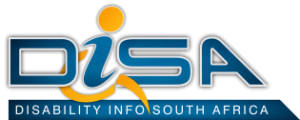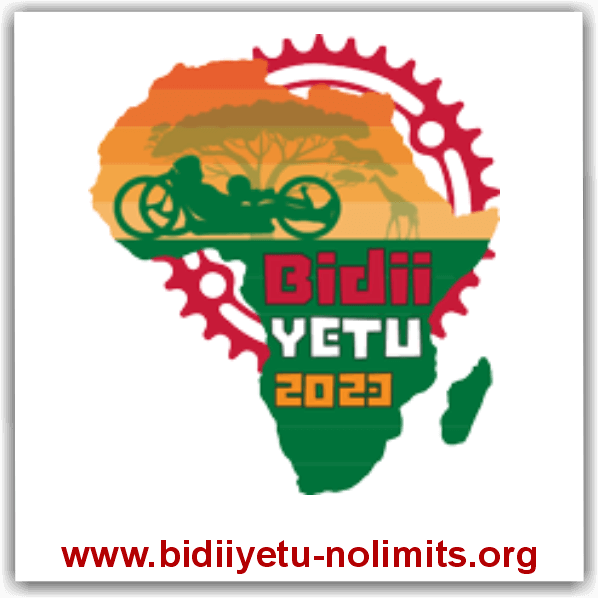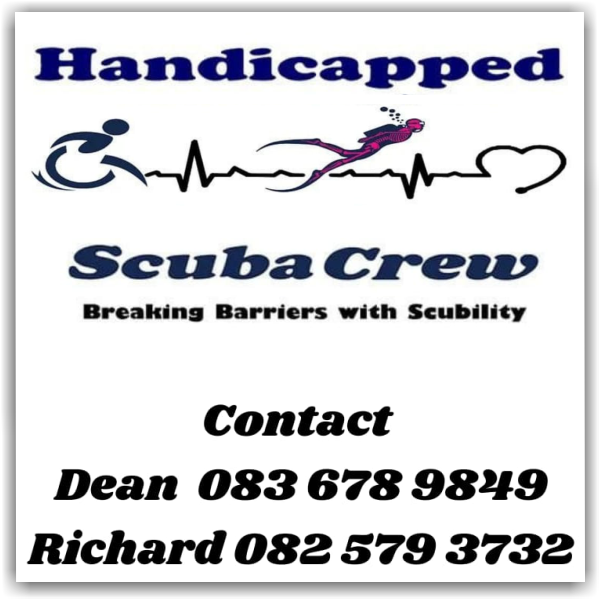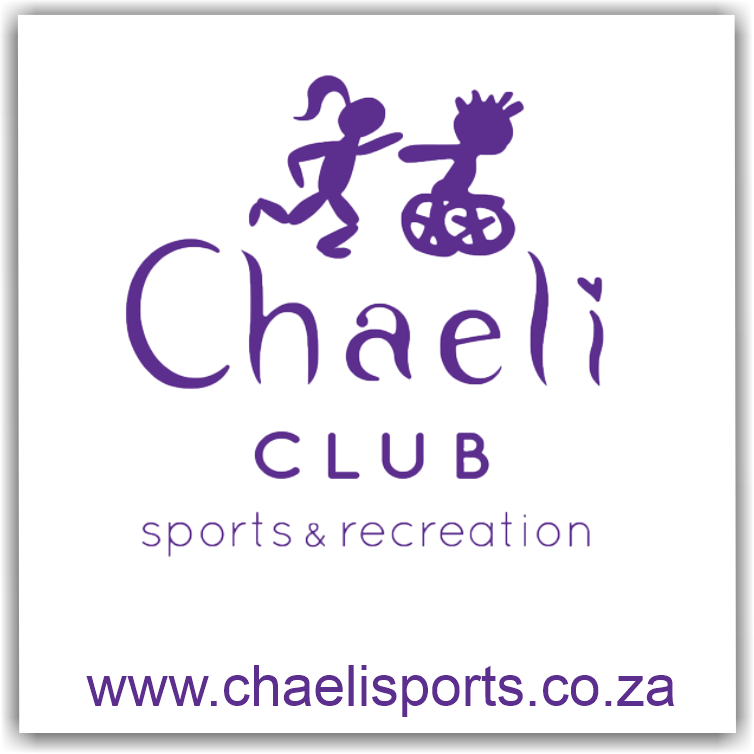Sport for Mobility Impaired
Contents: Jump to topic by click on the links below
Introduction
Welcome to the Sports, Hobbies, and Activities section of the DiSA website!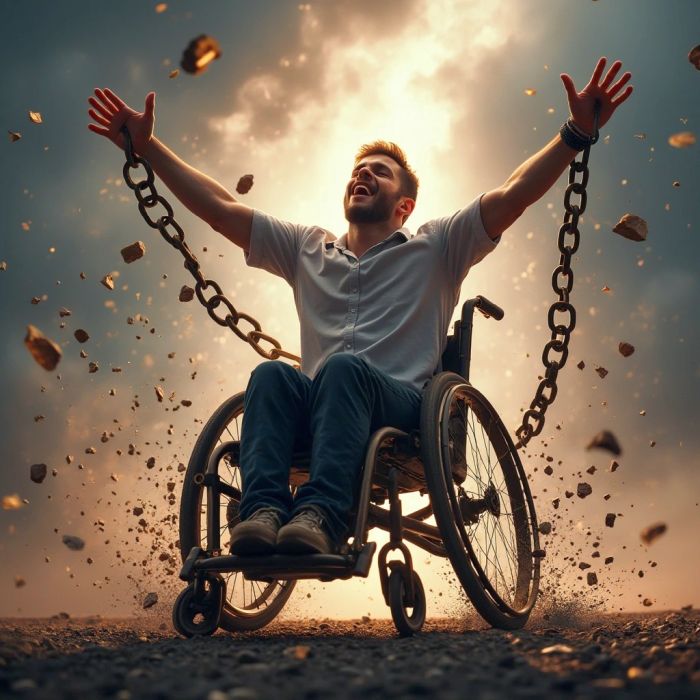
Here, we aim to unlock your potential by showing you just how many exciting activities are possible, no matter your impairment. From adaptive sports like wheelchair basketball, Hand Cycling and wheelchair tennis to unique activities like Boccia designed specifically for persons with disabilities. - There is something for everyone.
On this page we will take you through the steps of choosing a sport suited for you and connect you with clubs, organisations, and support networks that can help you get involved and stay active and get to the next level to represent your province or country if this interests you.
Lets Break free of our shackles and get started!
Getting Started with Disability Sports in South Africa
Sports and activities are not only enjoyable but are also a powerful way to stay healthy, build confidence, and connect with others. Sport offers great physical, mental, and social benefits, helping to build confidence, improve health, and foster inclusion.
Whether you’re joining in or cheering from the sidelines, sport brings people together, inspires communities, and helps challenge the stigma around disability.
If you have a physical impairment and want to participate in sport, here are some steps to get started:
- Understand your unique abilities and interests
- Find Sports Appropriate For You
- Consider the costs of the equipment
- Find an Organisation that can assist you with equipment
- Get a Medical Clearance
- Get Assessed & Classified
- Join a Local Club or Provincial Body
- Find out more about the Sports Governing Bodies
Understand your unique abilities and interests
Explore the range of adaptive sports available in South Africa listed below—from wheelchair basketball and para-athletics to boccia, hand-cycling, wheelchair racing, swimming, etc.
You would need to decide whether you are interested in a team or individual sport. High action or something slow paced. Land or water sport, etc. Chat to your doctor, physiotherapist, or rehabilitation specialist to determine which types of sports would be safe for you to participate in.
Sports Appropriate For My Disability
Whatever your age, disability, experience level, or gender, there should be some type of sport that is available for you to enjoy in South Africa. Whether you prefer team or individual sports, Winter or Summer sports, high action or something a bit slower, if you've got the enthusiasm and the drive, you should be able to find something in this section that will suit you. The key is to focus on the things that you can do, rather than those that you cannot. Below are a list of sports and activities that are available to persons with Mobility Impairments in South Africa, some of these sports are available at social, club and Provincial level. To view more information about these Sports and activities, view the menu on the left, or click on the links below:
Athletics & Swimming
Athletics and Swimming is represented in the Paralympic Games and have a variety of disciplines covering a large spectrum of mobility impairments.Thanks to its classification system, athletes with similar disabilities compete together.
Both Athletics and Swimming is available for people with various types of physical impairments, including spinal cord injuries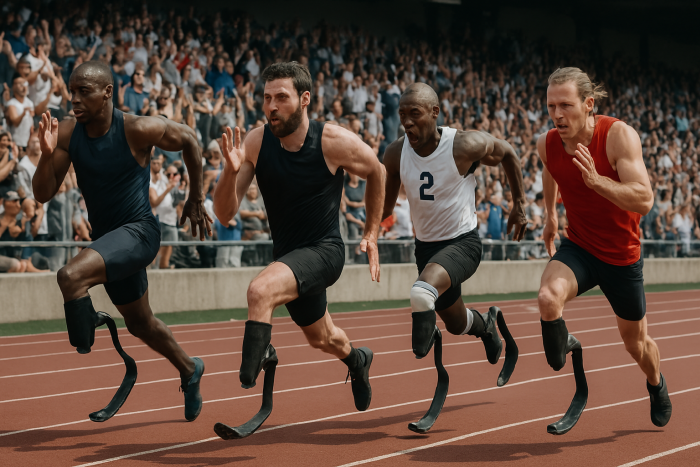 (paraplegic and quadriplegics), amputees, cerebral palsy, spina bifida, orthopaedic injuries, arthritis, muscular dystrophy and other disability groups to compete together. Able-bodied people can only compete at a recreational level.
(paraplegic and quadriplegics), amputees, cerebral palsy, spina bifida, orthopaedic injuries, arthritis, muscular dystrophy and other disability groups to compete together. Able-bodied people can only compete at a recreational level.
They are also both governed by SASCOC, who are responsible for the awarding National Protea Colours to athletes who have met the criteria in these different sporting codes.
These sports are however also available to all who wish to participate. Please view the menu on the left, or click on the links below to view more information about "Athletics & Swimming".
Basketball & Quad Rugby
Basketball and Quad Rugby are both sports which are played by individuals in teams in manual  Wheelchairs, especially designed for that sport. Both Basketball & Quad Rugby are played with round netballs, on courts, which are especially mapped out to the specific sizes & dimensions that the sport requires. These sports are played at social, club & Provincial level, as well as at the Paralympic Games, where the classification process is used.
Wheelchairs, especially designed for that sport. Both Basketball & Quad Rugby are played with round netballs, on courts, which are especially mapped out to the specific sizes & dimensions that the sport requires. These sports are played at social, club & Provincial level, as well as at the Paralympic Games, where the classification process is used.
Cycling and Adaptive Cyclling
Wheelchair Racing & Cycling are both track or road events in athletics. They are both open to athletes with a variety of types & degrees of disabilities. For those would be cyclists, whose mobility impairment prevents them from using their legs, handcycling is available. Athletes are classified in accordance with the nature & severity of their disability or combinations of disabilities. Competitors compete in specialized wheelchairs/handcycles. Both sports are competed in at social, club & Provincial level, as well as at International level.
Boccia & Dance Sport
Both Boccia & Dance Sport can be enjoyed on a recreational and/or competitive basis. Competitions are organized locally, regionally, nationally, and internationally. They can both be enjoyed despite an individual having a serious Mobility Impairment & both sports are also competed in at the Paralympics Games.
Martial Arts & Fencing
Both Fencing & Martial Arts in the form of Judo are competed in at the Paralympic Games, where the classification process is used. Judo though is only available for the Blind. Martial Arts as a whole is however available to most individuals with Mobility Impairments in South Africa. Both sports are played at social, club & Provincial level, as well as at International level. Individuals in wheelchairs can take part in both Fencing & Martial Arts from a wheelchair, however others can compete. These sports are not only a source of fun, but great exercise, a challenge, teachers discipline, & is a great way to meet new people.
Golf & Bowls
Both Disabled Golf & Bowls are available to most individuals with Mobility Impairments in South Africa, including those in wheelchairs. The classification process is used to guarantee that no matter your disability, everyone can compete on an even footing. Both sports are played at social, club & Provincial level, as well as at International level.
Sailing & Surfing
Disabled Sailing & Surfing are both water sports that that have been adapted from their original sports & are open to athletes with a wide variety of types & degrees of disabilities. Athletes receive classifications, so that they can be grouped for competition purposes according to their impairment. Both sports are enjoyed at social, club & Provincial level, as well as at International level. Both these sports can be participated in on equal terms.
Scuba Diving & Cricket
Both Scuba Diving and Cricket are activities/sports which can be enjoyed by many persons with Mobility Impairments, including persons who use wheelchairs despite their impairment. Both Scuba Diving and Cricket have been adapted slightly to make them available to most persons with disabilities in various countries around the world and in South Africa, through clubs and organisations such as the Handicapped Scuba Crew, which is a Nonprofit Organization and The Differently Abled Cricket Club. These sports/activities both offer a wide variety of benefits for persons with impairments but are not currently part of the Paralympics. Please click on the link below to find out more about Scuba Diving and Cricket and the clubs and organisations that can assist you and how they can benefit you through these activities and other services that they provide, or read the page below to find out more about other sports and activities in South Africa.
Tennis & Table Tennis
Tennis & Table Tennis are both sports that have been adapted from their original sports. Both sports can be played by people with nearly every disability & allows both sportsman who use wheelchairs & those who don't, to participate. Athletes receive classifications, so that they can be grouped for competition purposes according to their impairment. Both sports are played at social, club & Provincial level, as well as at International level.
Wheelchair Racing
Wheelchair Racing have both track and road events in athletics and is open to athletes with a various types and degrees of impairments. Athletes are classified in accordance with the nature and severity of their impairment or combinations of disabilities. Competitors compete in specialized wheelchairs at social, club, Provincial and International level.
Consider the costs of the equipment you will need including the companies that supply it
When planning to participate in disability sports, it's important to consider the full range of costs involved.
Specialized equipment—such as sports wheelchairs, ParaGolfers, Hand Cycles, Sports Prosthesis as well as Rehabilitation and Exercise Equipment such as  Standing Frames and Stationary Hand Bikes—can be expensive. Sourcing them from reputable suppliers in South Africa such as Sitwell Technologies, and CE Mobility, is crucial to ensure quality and a proper fit.
Standing Frames and Stationary Hand Bikes—can be expensive. Sourcing them from reputable suppliers in South Africa such as Sitwell Technologies, and CE Mobility, is crucial to ensure quality and a proper fit.
In addition to equipment, there are often other significant expenses to factor in, such as transport to and from training or competitions, accommodation if events are held out of town, entry fees, and ongoing maintenance of the gear.
Being aware of these costs upfront can determine which sports to participate in and help with budgeting and accessing possible funding or sponsorship opportunities.
Organisations that can assist you with equipment and expenses
If you are not in a position to afford the equipment you require, consider looking for Organisations that can sponsor equipment and other expenses, such as the QASA Education and Sports Fund. QASA has a fund for wheelchair users to participate in sporting activities..
QASA Education and Sports Fund
The QuadPara Association of South Africa (QASA) is a non-profit organisation (NPO 000-881) of Quadriplegics and Paraplegics in South Africa. QASA’s mission is “to improve lives by securing resources to advocate, educate, capacitate, support and mobilize”.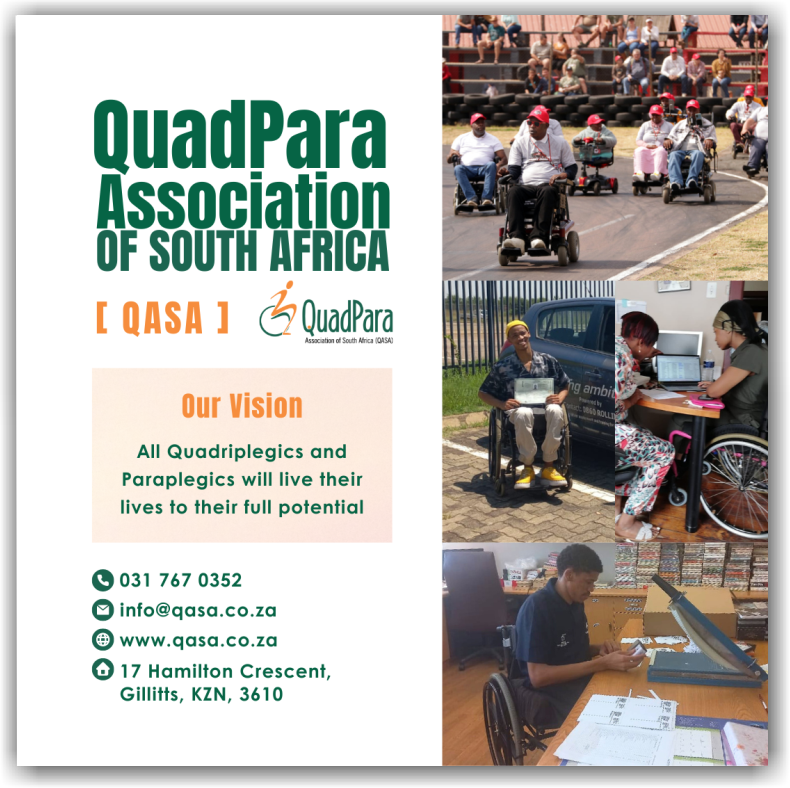 QASA’s vision is that “all quadriplegics and paraplegics will live their lives to their full potential”.
QASA’s vision is that “all quadriplegics and paraplegics will live their lives to their full potential”.
QASA develops products, programmes and services for quadriplegic and paraplegic members to build their capacity and ensure opportunities for societal integration and empowerment.
These projects and services include but are not limited to the Education and Sports Fund:
Wheelchair sports are sporting activities where participants use wheelchairs – either manual or power. There are several sports that have been adapted to be played by wheelchair users in South Africa.
QASA wants to give their membership a holistic development and feels that sports are a vital way of keeping fit and healthy for wheelchair users. QASA recognizes the value of sport and hobby and wants to encourage participation by Quadriplegics and Paraplegics. For this reason, QASA has a fund for wheelchair users to participate in sporting activities.
Get a Medical Clearance
To participate, you'll need a doctor’s clearance, especially for competitive or high-performance sport. Some sports also require specific assessments (e.g., heart rate, respiratory fitness, etc.).
Get Assessed & Classified
To compete formally, especially in para-sport or at Paralympic level, you must undergo functional classification based on your physical, visual, or intellectual impairment. This helps ensure fair competition.
Thanks to its classification system, athletes with similar disabilities are able to compete together in competition, athletes who participate in Paralympic sports are grouped into ten major categories, based on their type of disability.
Physical Impairment - There are eight different types of physical impairments:
- Impaired muscle power - With impairments in this category, the force generated by muscles, such as the muscles of one limb, one side of the body or the lower half of the body is reduced, e.g. due to spinal-cord injury, spina bifida or polio.
- Impaired passive range of movement - Range of movement in one or more joints is reduced in a systematic way. Acute conditions such as arthritis are not included.
- Loss of limb or limb deficiency - A total or partial absence of bones or joints from partial or total loss due to illness, trauma, or congenital limb deficiency (e.g. dysmelia).
- Leg-length difference - Significant bone shortening occurs in one leg due to congenital deficiency or trauma.
- Short stature - Standing height is reduced due to shortened legs, arms and trunk, which are due to a musculoskeletal deficit of bone or cartilage structures.
- Hypertonia - Hypertonia is marked by an abnormal increase in muscle tension and reduced ability of a muscle to stretch. Hypertonia may result from injury, disease, or conditions which involve damage to the central nervous system (e.g. cerebral palsy).
- Ataxia - Ataxia is an impairment that consists of a lack of coordination of muscle movements (e.g. cerebral palsy, Friedreich’s ataxia).
- Athetosis - Athetosis is generally characterized by unbalanced, involuntary movements and a difficulty maintaining a symmetrical posture (e.g. cerebral palsy, choreoathetosis).
There are a wide variety of different levels of activities and sports, including both Paralympic and non-Paralympic sports and those that are offered at provincial and club level, as well as those supplied by various organisations.
Join a Local Club or Provincial Body
Once you've identified a sport you're interested in, start training and building experience by joining a registered sports club or provincial federation. This gives you access to coaching, events, and classification assessments.
There are a wide variety of University or school para-sport programs such as Stellenbosch Maties Parasport, UP TuksSport, as well as Sports Clubs in South Africa, which supports sports persons with disabilities such as The Differently Abled Cricket Club and Handicapped Scuba Crew. These and other sports clubs offer either a single or a variety of sports in a particular province or city in South Africa.
There are also various Provincial Sports Associations that govern a variety sports in particular provinces in South Africa, such as the Free State Sport Association for the Physically Disabled and Visually Impaired who are SASAPD affiliated and cater for sporting codes such as Athletics – Track and Field, Boccia, CP Soccer, Para Cycling, Goal Ball, Swimming.
National and International Disability Sports Organisations
There are also a variety of Sports Organisations which govern and promote Disability Sports. These include national governing bodies, international federations, professional leagues, amateur leagues, and grassroots organisations.
These Sports Organisations are categorised as follows:
1. International Disability Sports Organisations: Such as the International Paralympic Committee, International Wheelchair and Amputee Sports Federation (IWAS), the International Blind Sports Federation (IBSA), International Sports Federation for Persons with Intellectual Disability (INAS) and the Cerebral Palsy International Sports and Recreation Association (CP-ISRA), which govern some sports that are specific to certain disability groups.
They work to Develop sports; Organise events; Promote rights; Support athletes; Exchange resources; Prepare standards, etc.
Read More about the International Paralympic Committee below
2. National Disability Sports Organisations: Govern some disability sports such as the South African Sports Association for Physically Disabled (SASAPD). SASAPD is a federation that promotes and develops sports for athletes with physical disabilities and visual impairments, like boccia, goalball, para-athletics, para-cycling, para powerlifting, and para-swimming.
Read More about SASAPD and the services that they provide
3. Provincial Disability Sports Organisations: Such as the Free State Sport Association for the Physically Disabled and Visually Impaired (FFSAPD), which promotes and develop sports in their specific province for people with disabilities. FFSAPD provides sports for persons with Physical and Visual Impairments such as athletics, boccia, CP soccer, para cycling, goalball, and swimming.
Read More about FFSAPD and the benefits of the services that they provide
4. Sports Club Organisations: Offers either a single or a variety of sports in a particular province or city in South Africa, this includes clubs such as the Differently Abled Cricket Club and “Handicapped Scuba Crew”.
Read More about these sports on our Sports Page.
Paralympic Games
Organised sport for people with physical impairments dates as far back as 1911. After World War II, sport became an important part of rehabilitation for injured soldiers and civilians. What began as a tool for recovery soon evolved into recreational and then competitive sport, leading to the development of the Paralympic Games we know today.
South African Paralympians have a proud history of excellence, often outperforming their Olympic counterparts on the world stage. The International Paralympic Committee (IPC) is the global governing body of the Paralympic Movement. Its purpose is to organise the Summer and Winter Paralympic Games and act as the International Federation which regulates 9 sports, supervising and coordinating World Championships and other competitions.
These sports include: Athletics, Swimming, Shooting, Powerlifting, Para-alpine skiing, Biathlon, Cross-country skiing, Ice sledge hockey and Wheelchair Dance Sport.
Read More about the Paralympics on their website
The South African Sports Confederation and Olympic Committee (SASCOC)
The South African Sports Confederation and Olympic Committee (SASCOC) is the National Olympic Committee and National Paralympic Committee for South Africa. They are the responsible body for South Africa at the Commonwealth Games and high-performance sport in the country. SASCOC coordinates the relationship with various international sports federations and look after all our various National Federations who are affiliated to them.
They are also responsible for awarding National Protea Colours to athletes who have met the criteria to represent South Africa in different sporting codes that they oversea. This includes Athletics, Swimming /Aquatics, Waterpolo, Archery, Badminton, Baseball, Basketball, Boxing, Canoeing, Cycling, Equestrian, Fencing, Football, Gymnastics, Handball, Hockey, Judo, Karate, Modern Pentathlon, Netball, Rowing, Rugby 7s, Sailing, Shooting, Table Tennis, Taekwondo, Tennis, Triathlon, Volleyball, Weightlifting and Wrestling.
Not all of these sports are however available for all persons with Mobility Impairments.
Read More more about SASCOC and the sport they oversee and services that they provide
South African Sports Association for Physically Disabled (SASAPD)
The South African Sports Association for Physically Disabled (SASAPD) focuses on the development and promotion of the sporting codes offered at Paralympic level for athletes with Physical Disabilities, Visual Impairments and blindness.
They offer pathways for qualification towards the Paralympic Games across a variety of sports, through their affiliations with international bodies such as: IBSA, IWAS, CPISRA and The Nedbank National Championships for Physically Disabled.
They also work and are an affiliate member of SASCOC as well as being associated members of a number of other national sporting federations.
SASAPD promote a number of sports including Para Athletics, Boccia, CP Football, Para Cycling, Goalball, Judo for the blind, Para Powerlifting and Para Swimming.
As part of their responsibility to ensure that competition in sport is fair and equal, a classification process is put in place which provides a structure for fair competition. It is important to note that the competitive structure provided by Classification systems is not only important for elite sport but also is essential for promoting grassroots participation in Para-sports by people with an impairment.
Read More more about SASAPD and the sport they oversee and services that they provide
Contents: To jump to the topic you would like, click on the links below
Introduction
Welcome to the Sports, Hobbies, and Activities section of the DiSA website!
Here, we aim to unlock your potential by showing you just how many exciting activities are possible, no matter your impairment. From adaptive sports like wheelchair basketball, Hand Cycling and wheelchair tennis to unique activities like Boccia designed specifically for persons with disabilities. - There is something for everyone. We’ll also connect you with clubs, organizations, and support networks that can help you get involved and stay active.
Getting Started with Disability Sports in South Africa
Participating in sport is a powerful way to stay healthy, build confidence, and connect with others—regardless of your physical ability. Sport offers great physical, mental, and social benefits, helping to build confidence, improve health, and foster inclusion.
Whether you’re joining in or cheering from the sidelines, sport brings people together, inspires communities, and helps challenge the stigma around disability.
If you have a physical disability and want to get involved in sport, the first step is to:
- Understand your unique abilities and interests
- Consider the costs of the equipment you will need including the companies that supply it
- Get a Medical Clearance
- Get Assessed & Classified
- Organisations that can assist you with equipment and expenses
- Join a Local Club or Provincial Body
- Find out more about the Sports Governing Bodies
Understand your unique abilities and interests
Explore the range of adaptive sports available in South Africa listed below—from wheelchair basketball and para-athletics to boccia, hand-cycling, wheelchair racing, swimming, etc.
You would need to decide whether you are interested in a team or individual sport. High action or something slow paced. Land or water sport, etc. Chat to your doctor, physiotherapist, or rehabilitation specialist to determine which types of sports would be safe for you to participate in.
Read More about Sports Appropriate For My Disability
Consider the costs of the equipment you will need including the companies that supply it
When planning to participate in disability sports, it's important to consider the full range of costs involved.
Specialized equipment—such as sports wheelchairs, ParaGolfers, Hand Cycles, Sports Prosthesis as well as Rehabilitation and Exercise Equipment such as  Standing Frames and Stationary Hand Bikes—can be expensive. Sourcing them from reputable suppliers in South Africa such as Sitwell Technologies, and CE Mobility, is crucial to ensure quality and a proper fit.
Standing Frames and Stationary Hand Bikes—can be expensive. Sourcing them from reputable suppliers in South Africa such as Sitwell Technologies, and CE Mobility, is crucial to ensure quality and a proper fit.
In addition to equipment, there are often other significant expenses to factor in, such as transport to and from training or competitions, accommodation if events are held out of town, entry fees, and ongoing maintenance of the gear.
Being aware of these costs upfront can determine which sports to participate in and help with budgeting and accessing possible funding or sponsorship opportunities.
Get a Medical Clearance
To participate, you'll need a doctor’s clearance, especially for competitive or high-performance sport. Some sports also require specific assessments (e.g., heart rate, respiratory fitness, etc.).
Get Assessed & Classified
To compete formally, especially in para-sport or at Paralympic level, you must undergo functional classification based on your physical, visual, or intellectual impairment. This helps ensure fair competition.
Thanks to its classification system, athletes with similar disabilities are able to compete together in competition, athletes who participate in Paralympic sports are grouped into ten major categories, based on their type of disability.
Physical Impairment - There are eight different types of physical impairments:
- Impaired muscle power - With impairments in this category, the force generated by muscles, such as the muscles of one limb, one side of the body or the lower half of the body is reduced, e.g. due to spinal-cord injury, spina bifida or polio.
- Impaired passive range of movement - Range of movement in one or more joints is reduced in a systematic way. Acute conditions such as arthritis are not included.
- Loss of limb or limb deficiency - A total or partial absence of bones or joints from partial or total loss due to illness, trauma, or congenital limb deficiency (e.g. dysmelia).
- Leg-length difference - Significant bone shortening occurs in one leg due to congenital deficiency or trauma.
- Short stature - Standing height is reduced due to shortened legs, arms and trunk, which are due to a musculoskeletal deficit of bone or cartilage structures.
- Hypertonia - Hypertonia is marked by an abnormal increase in muscle tension and reduced ability of a muscle to stretch. Hypertonia may result from injury, disease, or conditions which involve damage to the central nervous system (e.g. cerebral palsy).
- Ataxia - Ataxia is an impairment that consists of a lack of coordination of muscle movements (e.g. cerebral palsy, Friedreich’s ataxia).
- Athetosis - Athetosis is generally characterized by unbalanced, involuntary movements and a difficulty maintaining a symmetrical posture (e.g. cerebral palsy, choreoathetosis).
There are a wide variety of different levels of activities and sports, including both Paralympic and non-Paralympic sports and those that are offered at provincial and club level, as well as those supplied by various organisations.
Organisations that can assist you with equipment and expenses
If you are not in a position to afford the equipment you require, consider looking for Organisations that can sponsor equipment and other expenses, such as the QASA Education and Sports Fund. QASA has a fund for wheelchair users to participate in sporting activities..
QASA Education and Sports Fund
The QuadPara Association of South Africa (QASA) is a non-profit organisation (NPO 000-881) of Quadriplegics and Paraplegics in South Africa. QASA’s mission is “to improve lives by securing resources to advocate, educate, capacitate, support and mobilize”. QASA’s vision is that “all quadriplegics and paraplegics will live their lives to their full potential”.
QASA’s vision is that “all quadriplegics and paraplegics will live their lives to their full potential”.
QASA develops products, programmes and services for quadriplegic and paraplegic members to build their capacity and ensure opportunities for societal integration and empowerment.
These projects and services include but are not limited to the Education and Sports Fund:
Wheelchair sports are sporting activities where participants use wheelchairs – either manual or power. There are several sports that have been adapted to be played by wheelchair users in South Africa.
QASA wants to give their membership a holistic development and feels that sports are a vital way of keeping fit and healthy for wheelchair users. QASA recognizes the value of sport and hobby and wants to encourage participation by Quadriplegics and Paraplegics. For this reason, QASA has a fund for wheelchair users to participate in sporting activities.
Join a Local Club or Provincial Body
Once you've identified a sport you're interested in, start training and building experience by joining a registered sports club or provincial federation. This gives you access to coaching, events, and classification assessments.
There are a wide variety of University or school para-sport programs such as Stellenbosch Maties Parasport, UP TuksSport, as well as Sports Clubs in South Africa, which supports sports persons with disabilities such as The Differently Abled Cricket Club and Handicapped Scuba Crew. These and other sports clubs offer either a single or a variety of sports in a particular province or city in South Africa.
There are also various Provincial Sports Associations that govern a variety sports in particular provinces in South Africa, such as the Free State Sport Association for the Physically Disabled and Visually Impaired who are SASAPD affiliated and cater for sporting codes such as Athletics – Track and Field, Boccia, CP Soccer, Para Cycling, Goal Ball, Swimming.
National and International Disability Sports Organisations
There are also a variety of Sports Organisations which govern and promote Disability Sports. These include national governing bodies, international federations, professional leagues, amateur leagues, and grassroots organisations.
These Sports Organisations are categorised as follows:
1. International Disability Sports Organisations: Such as the International Paralympic Committee, International Wheelchair and Amputee Sports Federation (IWAS), the International Blind Sports Federation (IBSA), International Sports Federation for Persons with Intellectual Disability (INAS) and the Cerebral Palsy International Sports and Recreation Association (CP-ISRA), which govern some sports that are specific to certain disability groups.
They work to Develop sports; Organise events; Promote rights; Support athletes; Exchange resources; Prepare standards, etc.
Read More about the International Paralympic Committee below
2. National Disability Sports Organisations: Govern some disability sports such as the South African Sports Association for Physically Disabled (SASAPD). SASAPD is a federation that promotes and develops sports for athletes with physical disabilities and visual impairments, like boccia, goalball, para-athletics, para-cycling, para powerlifting, and para-swimming.
Read More about SASAPD and the services that they provide
3. Provincial Disability Sports Organisations: Such as the Free State Sport Association for the Physically Disabled and Visually Impaired (FFSAPD), which promotes and develop sports in their specific province for people with disabilities. FFSAPD provides sports for persons with Physical and Visual Impairments such as athletics, boccia, CP soccer, para cycling, goalball, and swimming.
Read More about FFSAPD and the benefits of the services that they provide
4. Sports Club Organisations: Offers either a single or a variety of sports in a particular province or city in South Africa, this includes clubs such as the Differently Abled Cricket Club and “Handicapped Scuba Crew”.
Read More about these sports on our Sports Page.
Paralympic Games
Organised sport for people with physical impairments dates as far back as 1911. After World War II, sport became an important part of rehabilitation for injured soldiers and civilians. What began as a tool for recovery soon evolved into recreational and then competitive sport, leading to the development of the Paralympic Games we know today.
South African Paralympians have a proud history of excellence, often outperforming their Olympic counterparts on the world stage. The International Paralympic Committee (IPC) is the global governing body of the Paralympic Movement. Its purpose is to organise the Summer and Winter Paralympic Games and act as the International Federation which regulates 9 sports, supervising and coordinating World Championships and other competitions.
These sports include: Athletics, Swimming, Shooting, Powerlifting, Para-alpine skiing, Biathlon, Cross-country skiing, Ice sledge hockey and Wheelchair Dance Sport.
Read More about the Paralympics on their website
The South African Sports Confederation and Olympic Committee (SASCOC)
The South African Sports Confederation and Olympic Committee (SASCOC) is the National Olympic Committee and National Paralympic Committee for South Africa. They are the responsible body for South Africa at the Commonwealth Games and high-performance sport in the country. SASCOC coordinates the relationship with various international sports federations and look after all our various National Federations who are affiliated to them.
They are also responsible for awarding National Protea Colours to athletes who have met the criteria to represent South Africa in different sporting codes that they oversea. This includes Athletics, Swimming /Aquatics, Waterpolo, Archery, Badminton, Baseball, Basketball, Boxing, Canoeing, Cycling, Equestrian, Fencing, Football, Gymnastics, Handball, Hockey, Judo, Karate, Modern Pentathlon, Netball, Rowing, Rugby 7s, Sailing, Shooting, Table Tennis, Taekwondo, Tennis, Triathlon, Volleyball, Weightlifting and Wrestling.
Not all of these sports are however available for all persons with Mobility Impairments.
South African Sports Association for Physically Disabled (SASAPD)
The South African Sports Association for Physically Disabled ( SASAPD) focuses on the development and promotion of the sporting codes offered at Paralympic level for athletes with Physical Disabilities, Visual Impairments and blindness.
They offer pathways for qualification towards the Paralympic Games across a variety of sports, through their affiliations with international bodies such as: IBSA, IWAS, CPISRA and The Nedbank National Championships for Physically Disabled.
They also work and are an affiliate member of SASCOC as well as being associated members of a number of other national sporting federations.
SASAPD promote a number of sports including Para Athletics, Boccia, CP Football, Para Cycling, Goalball, Judo for the blind, Para Powerlifting and Para Swimming.
As part of their responsibility to ensure that competition in sport is fair and equal, a classification process is put in place which provides a structure for fair competition. It is important to note that the competitive structure provided by Classification systems is not only important for elite sport but also is essential for promoting grassroots participation in Para-sports by people with an impairment.
Sports Appropriate For My Disability
Whatever your age, disability, experience level, or gender, there should be some type of sport that is available for you to enjoy in South Africa. Whether you prefer team or individual sports, Winter or Summer sports, high action or something a bit slower, if you've got the enthusiasm and the drive, you should be able to find something in this section that will suit you. The key is to focus on the things that you can do, rather than those that you cannot. Below are a list of sports and activities that are available to persons with Mobility Impairments in South Africa, some of these sports are available at social, club and Provincial level. To view more information about these Sports and activities, view the menu on the left, or click on the links below:
Athletics & Swimming
Athletics and Swimming is represented in the Paralympic Games and have a variety of disciplines covering a large spectrum of mobility impairments.Thanks to its classification system, athletes with similar disabilities compete together.
Both Athletics and Swimming is available for people with various types of physical impairments, including spinal cord injuries (paraplegic and quadriplegics), amputees, cerebral palsy, spina bifida, orthopaedic injuries, arthritis, muscular dystrophy and other disability groups to compete together. Able-bodied people can only compete at a recreational level.
(paraplegic and quadriplegics), amputees, cerebral palsy, spina bifida, orthopaedic injuries, arthritis, muscular dystrophy and other disability groups to compete together. Able-bodied people can only compete at a recreational level.
They are also both governed by SASCOC, who are responsible for the awarding National Protea Colours to athletes who have met the criteria in these different sporting codes.
These sports are however also available to all who wish to participate. Please view the menu on the left, or click on the links below to view more information about "Athletics & Swimming".
 Basketball & Quad Rugby
Basketball & Quad Rugby
Basketball and Quad Rugby are both sports which are played by individuals in teams in manual Wheelchairs, especially designed for that sport. Both Basketball & Quad Rugby are played with round netballs, on courts, which are especially mapped out to the specific sizes & dimensions that the sport requires. These sports are played at social, club & Provincial level, as well as at the Paralympic Games, where the classification process is used.
Boccia & Dance Sport
Both Boccia & Dance Sport can be enjoyed on a recreational and/or competitive basis. Competitions are organized locally, regionally, nationally, and internationally. They can both be enjoyed despite an individual having a serious Mobility Impairment & both sports are also competed in at the Paralympics Games.
Martial Arts & Fencing
Both Fencing & Martial Arts in the form of Judo are competed in at the Paralympic Games, where the classification process is used. Judo though is only available for the Blind. Martial Arts as a whole is however available to most individuals with Mobility Impairments in South Africa. Both sports are played at social, club & Provincial level, as well as at International level. Individuals in wheelchairs can take part in both Fencing & Martial Arts from a wheelchair, however others can compete. These sports are not only a source of fun, but great exercise, a challenge, teachers discipline, & is a great way to meet new people.
Golf & Bowls
Both Disabled Golf & Bowls are available to most individuals with Mobility Impairments in South Africa, including those in wheelchairs. The classification process is used to guarantee that no matter your disability, everyone can compete on an even footing. Both sports are played at social, club & Provincial level, as well as at International level.
Sailing & Surfing
Disabled Sailing & Surfing are both water sports that that have been adapted from their original sports & are open to athletes with a wide variety of types & degrees of disabilities. Athletes receive classifications, so that they can be grouped for competition purposes according to their impairment. Both sports are enjoyed at social, club & Provincial level, as well as at International level. Both these sports can be participated in on equal terms.
Scuba Diving & Cricket
Both Scuba Diving and Cricket are activities/sports which can be enjoyed by many persons with Mobility Impairments, including persons who use wheelchairs despite their impairment. Both Scuba Diving and Cricket have been adapted slightly to make them available to most persons with disabilities in various countries around the world and in South Africa, through clubs and organisations such as the Handicapped Scuba Crew, which is a Nonprofit Organization and The Differently Abled Cricket Club. These sports/activities both offer a wide variety of benefits for persons with impairments but are not currently part of the Paralympics. Please click on the link below to find out more about Scuba Diving and Cricket and the clubs and organisations that can assist you and how they can benefit you through these activities and other services that they provide, or read the page below to find out more about other sports and activities in South Africa.
Tennis & Table Tennis
Tennis & Table Tennis are both sports that have been adapted from their original sports. Both sports can be played by people with nearly every disability & allows both sportsman who use wheelchairs & those who don't, to participate. Athletes receive classifications, so that they can be grouped for competition purposes according to their impairment. Both sports are played at social, club & Provincial level, as well as at International level.
Wheelchair Racing
Wheelchair Racing have both track and road events in athletics and is open to athletes with a various types and degrees of impairments. Athletes are classified in accordance with the nature and severity of their impairment or combinations of disabilities. Competitors compete in specialized wheelchairs at social, club, Provincial and International level.
Cycling
Wheelchair Racing & Cycling are both track or road events in athletics. They are both open to athletes with a variety of types & degrees of disabilities. For those would be cyclists, whose mobility impairment prevents them from using their legs, handcycling is available. Athletes are classified in accordance with the nature & severity of their disability or combinations of disabilities. Competitors compete in specialized wheelchairs/handcycles. Both sports are competed in at social, club & Provincial level, as well as at International level.
Please send us information on any other sport not listed on this page.
If you would like to find a Sports Organization or Sports Club that is available near you, visit our Sports Search Facility Page: http://disabilityinfosa.co.za/search-for-info/sports-clubs-organizations/ or visit our Assistive Devices - Sports, Exercise & Rehabilitation Equipment Page to find equipment that can assist you to participate in various sports.
References
- https://en.wikipedia.org/wiki/Wheelchair_basketball
- http://sasapd.org.za/
- http://www.sascoc.co.za/
- https://en.wikipedia.org/wiki/Paralympic_Games
- http://www.hsa-sa.co.za/
- www.extremeabilities.co.za
- http://martialartssa.co.za/
- https://en.wikipedia.org/wiki/Wheelchair_racing
- http://martialartssa.co.za/
- https://www.carebysistersue.co.za/
